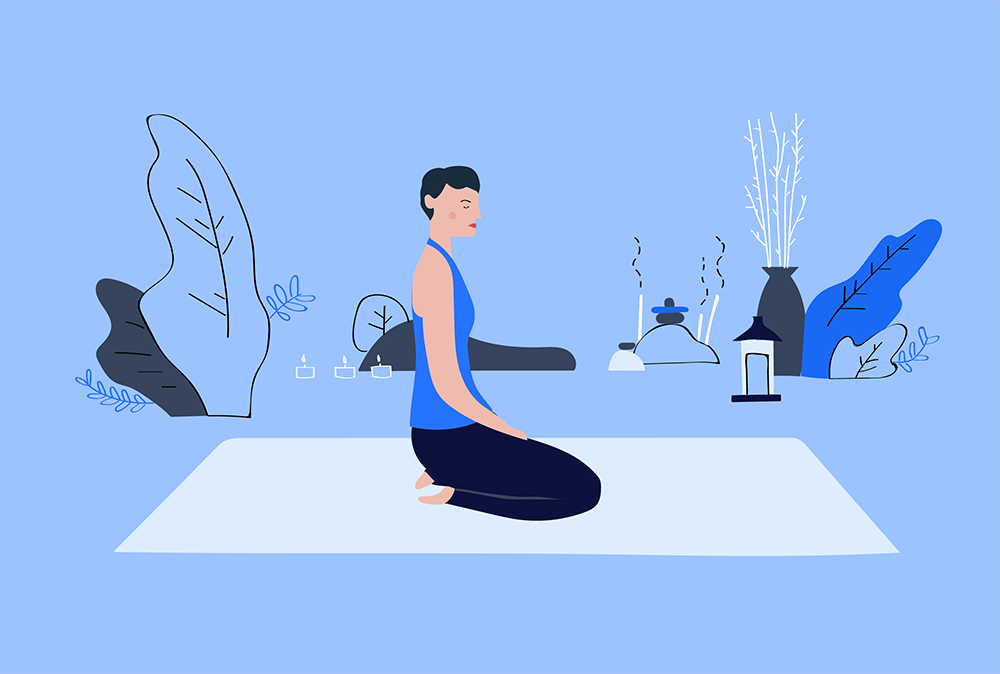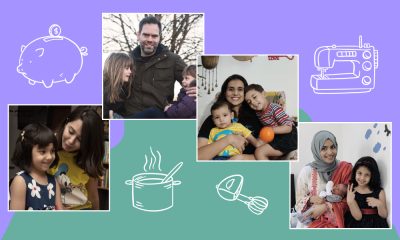Parenting
Seven Mental Health Tips From a Mom Who Knows
When we are stronger parents, we build stronger families — which helps us all.
We’ve all hit that wall. You know the one. Where your eyes are burning, your mind won’t stop spinning and all you want to do is go to sleep, but can’t because you need to make a school lunch, or fill out another form or reply to your child’s therapist.
When we consider all that we do in a day as parents, and especially as parents of children of determination, it’s easy to see how both our mental and physical health takes a toll. Here are seven quick tips to help you take care of you:
Connect with others
Having a support system of family and friends helps us all realize we aren’t alone. Whether it’s an online community of other parents of children with determination, a local moms group or seeing your family, all of these people can help support you when you need it. They’re also a good group of people to turn to when you need help, whether it is with babysitting, some insight on what your child is doing or someone to drop off soup if you catch a cold. If you’re overwhelmed and don’t know what to do, reach out for professional help. Find a professional such as a therapist or psychiatrist who can listen to you, offer you a safe space to vent and help you come up with coping strategies.

(c) Reset Fest Inc, Canada
Refuel yourself
When you’re exhausted, what makes you feel better? The answer could be sleep, praying, writing, listening to music, lighting a scented candle, journaling or any other number of things. The important thing is to ask yourself this question and find an answer. And then when you are in the midst of being exhausted, go back to your answer, invest a few minutes in doing what makes you feel better so you can refuel and get re-energized.
Play and find joy
When my daughter, Syona, was a toddler I would sometimes cancel our appointments for the day and just spend time playing with her. We would roll around on the floor, listen to songs and just laugh and play together. It was a great way to spend time together and also reminded me that there is so much more to her and to our life than just her needs, endless appointments or her diagnosis of cerebral palsy.
Exercise
I don’t like exercise. But finding a way to incorporate a short workout into my daily routine has been the single best thing I’ve done to invest in my mental health. It’s a short series of bodyweight exercises that was recommended to me by my physiotherapist. It makes me feel stronger physically, which makes me feel stronger mentally. Even walking for a few minutes has been shown to boost your mood. Find a form of exercise that appeals to you whether that’s yoga, kickboxing, or a dance class and try to be consistent with it. If you can’t make it to dance class, put on some music at home and get loose for a few minutes or find a short workout on YouTube that you like. It’ll break your monotonous schedule and recharge you.

(c) Reset Fest Inc, Canada
Re:Set your expectations
Are your expectations realistic? If not, it’s time to readjust. Prioritize your to-do list and do the most time-sensitive tasks first. Accomplish those, and if you have extra time tackle the next thing. While I’m a big fan of being able to cross every item off my to-do list, it’s simply not possible so I make incremental progress in the list that never ends. For example, over the weekend I usually send our caregiver her weekly schedule and my daughter’s teacher our list of appointments for the week because those are the two most time-sensitive tasks. If I have time, I take a look at one other item that isn’t pressing like researching a piece of equipment that may be of benefit for my daughter.
Get organized
If chaos makes you more stressed out, then getting organized can help. In our home, we use a shared Google Calendar to manage our schedules, and try and do paperwork on a monthly basis so it doesn’t accumulate. Take a bit of time and set-up systems that help keep your family organized and on the same page. This will help in reducing stress over time.
Breathe
Most importantly, breathe! And pay attention to your breath. I catch myself holding my breath several times an hour, whether it’s because I’m running late or preparing to tackle a task. When I do, I pause and take a few deep breaths. Breathing resets our body and our brain. It has an automatic calming effect and makes us more mindful. The best part is that it takes no extra time, which is key for us busy parents. There are several apps out there that help you incorporate mindfulness and breathing into your regular routine — do your research and find the one that works for you.
Taking care of yourself can sometimes feel like you’re just adding to your too-long to-do list and you may be hit with the infamous “mom guilt” about prioritizing yourself. Putting yourself and your mental health first will make you stronger and a better parent. And when we are stronger parents we build stronger families, which helps us all.
Anchel Krishna is a mom of two daughters, including one with cerebral palsy. She works as a communications professional for a children’s rehabilitation organization in Canada and does some freelance writing about being a parent. Follow Anchel on Twitter.
























